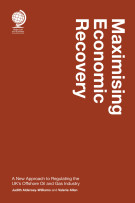
Q: What is world trade law in essence?
In essence, world trade law involves the examination of trading relationships between countries. The international principle of free trade requires international laws and rules that facilitate and liberalize trade in the global context.
Q: International trade laws seem to be very complex. How can I tell where a world trade law solution might be applicable in my practice?
In actuality, international trade law situations are not overly complicated. As a practitioner, when a client presents you with a scenario that involves jurisdictional issues and economic activities, you should at least briefly examine the possibility that international trade law might be involved at some level.
It is important to note that the scope of international trade law has expanded and now includes more than the regulation of tariffs and trade in goods. International trade law now extends to technical standards, dumping and anti-dumping measures, subsidies, and even to services and financial services.
Q: If my client is concerned that there has been a breach of world trade law rules by, for example, a country, what can I actually do on the client's behalf?
The answer to this question primarily depends on the client’s jurisdiction. For Canada, the United States and the European Union, there is a neat chapter at beginning of World Trade Law in Practice that details the available mechanisms through which companies or trade associations can launch a complaint in the domestic system that will then be taken up by the countries to the WTO.
Q: I thought that the Doha trade law negotiations had effectively stalled. Is that the case?
Yes and no. This status should not be taken as casting doubt on the negotiations or the future of international trade law. Past experiences have taught us that negotiations in the trade law realm often stop and start. For example, during the Uruguay round of negotiations , which led to the formation of the WTO, there were stumbling blocks - and yet, ultimately, the negotiations were successful.
The Doha round seems to be following the same pattern. Although it might appear that there is no obvious progress, this does not mean that the dialogue has ceased altogether. Countries are still discussing international trade law and continuing negotiations in other venues, such as regional trade agreement negotiations. Thus, lawyers and clients must stay focused on international trade law, regardless of the immediate progress of the Doha negotiations.
Q: With the increasing focus on sustainability and climate change issues, what is the nexus with world trade law?
This is a very important question. For a quick answer, I would like to point to World Trade Law in Practice, which has a chapter devoted to sustainable development law and also offers guidance as to the relationship between trade law and climate change.
At the moment, it is unclear whether international trade law fosters or frustrates the goals of policies that combat climate change. I think there’s a growing understanding that we could use trade law to further initiatives that seek to combat climate change. Trade law can help us to achieve climate change goals by, for example, liberalizing trade in environmental goods and services.
Q: Given this increasing focus on sustainability and climate change issues, shouldn’t we be focusing more on local producers?
That depends on the products we are focusing on. Perhaps if products are produced locally, it would be beneficial to the local source, but for most products this is not the case. Again, trade law can help us - in defining the trading relationship involved and the content of products to help us make more informed decisions as consumers and retailers.
Summary:
Any practitioner with clients who engage in an economic activity should at the very least be aware that international trade law exists and might be relevant to his or her clients. Students of international law should also learn about international trade law because there are clear connections with other areas of law, such as international environmental law or human rights law.






